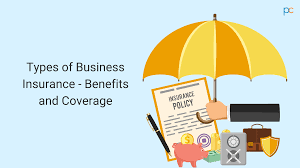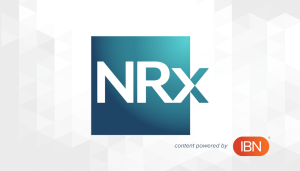
For small to medium-sized businesses (SMBs), managing risk is one of the most important aspects of ensuring long-term survival and success. While large corporations often have the financial cushion to weather unexpected crises, SMBs are more vulnerable to disruptions, from natural disasters and lawsuits to cyberattacks and employee injuries. This is where business insurance becomes crucial.
Business insurance offers SMBs a financial safety net to protect against unforeseen events that could otherwise lead to crippling losses. According to the U.S. Small Business Administration (SBA), over 20% of small businesses fail in their first year, and nearly 50% fail within five years—many due to financial difficulties caused by unexpected disruptions. Business insurance provides critical support, helping businesses continue operations despite these challenges. Beyond basic liability protection, there are several other essential coverage options that every SMB should consider.
The Benefits of Having a Business Insurance Policy
- Legal Protection and Compliance One of the most immediate benefits of having a business insurance policy is ensuring legal compliance. For example, in New York, businesses with employees are required to have workers’ compensation and disability insurance. Failure to comply can result in hefty fines and legal actions. General liability insurance also shields SMBs from lawsuits related to injuries, accidents, and negligence claims. A study by Hiscox found that 43% of small businesses had experienced a lawsuit, with legal costs sometimes exceeding $100,000. Without insurance, these legal disputes could bankrupt an SMB.
- Safeguarding Assets and Property For SMBs, losing physical assets can be devastating. Whether through fire, theft, or natural disasters, the damage to property can result in substantial financial losses. Property insurance provides essential coverage for buildings, equipment, and inventory, helping businesses recover and rebuild after such incidents. For instance, in 2012, Hurricane Sandy affected thousands of businesses in New York, and businesses without proper property insurance struggled to recover. According to the Federal Emergency Management Agency (FEMA), 40% of small businesses never reopen after a disaster.
- Business Continuity Disruptions to business operations—whether due to property damage or other unforeseen events—can lead to revenue losses. Business interruption insurance provides compensation for lost income and operational costs during the recovery period. Nationwide Insurance reports that 25% of small businesses would fail within a month if they experienced a major disruption. For New York-based SMBs, where operational costs are high, business interruption insurance is crucial for maintaining cash flow during periods of downtime.
- Employee Protection Employees are a critical asset for any SMB, and protecting their well-being is not only a legal obligation but also a key factor in maintaining a loyal and productive workforce. Workers’ compensation insurance ensures that employees who are injured on the job receive medical care and wage replacement. Health and disability insurance packages further boost employee satisfaction and retention. According to the Society for Human Resource Management (SHRM), companies that offer comprehensive benefits experience higher employee retention rates and increased morale, which ultimately improves productivity.
- Protection from Cyber Threats In today’s digital age, cyber threats pose a growing risk to businesses of all sizes. According to Accenture, 43% of cyberattacks target small businesses, and 60% of those businesses go out of operation within six months of a breach. Cyber liability insurance helps protect against the costs associated with data breaches, ransomware, and other cybercrimes, covering expenses such as data recovery, legal fees, and customer notifications. For SMBs relying on digital systems for operations, cyber insurance is becoming an essential part of their risk management strategy.
- Improved Credibility with Clients For SMBs, having business insurance not only protects against financial loss but also enhances credibility with clients. Many clients prefer to work with insured businesses because it signals professionalism and reliability. For example, if a client requires a service or product that involves significant liability risks, knowing that the business is insured offers peace of mind. This is especially important in industries like construction, consulting, and real estate.
There are several types of business insurance, each designed to protect different aspects of a business’s operations. Here’s a breakdown of the most common types:
Different Types Of Business Insurance options in New York
1. General Liability Insurance
This is one of the most essential types of business insurance. It covers claims of bodily injury, property damage, and personal injury that occur on your business premises or as a result of your business operations. General liability insurance is fundamental for protecting against lawsuits and claims from third parties.
2. Commercial Property Insurance
This insurance protects the physical assets of your business, such as buildings, equipment, and inventory, from damage or loss due to events like fire, theft, or natural disasters. It ensures that the business can recover and rebuild after unexpected damage to property.
3. Business Interruption Insurance
Also known as business income insurance, this policy compensates businesses for lost income when operations are disrupted due to covered events such as fires or natural disasters. It helps cover operating expenses, rent, payroll, and other essential costs during the recovery period.
4. Workers’ Compensation Insurance
This is legally required in most states, including New York, for businesses with employees. Workers’ compensation insurance covers medical expenses and lost wages for employees who get injured or become ill while performing job-related duties.
5. Professional Liability Insurance (Errors & Omissions)
This insurance is critical for service-based businesses and professionals like doctors, lawyers, or consultants. It protects against claims of negligence, mistakes, or failure to deliver services as promised. Professional liability insurance helps cover legal costs and settlements related to professional errors.
6. Product Liability Insurance
For businesses that manufacture or sell products, this coverage protects against claims that a product caused injury or damage. It’s essential for safeguarding against product defects, malfunctions, or unforeseen harm caused by a product.
7. Commercial Auto Insurance
If your business owns vehicles or if employees use their personal vehicles for business purposes, commercial auto insurance is necessary. It covers accidents, property damage, and liability involving business-related vehicle use.
8. Cyber Liability Insurance
With the increasing risk of cyberattacks and data breaches, cyber liability insurance protects businesses from financial losses associated with data theft, system hacks, or breaches of sensitive customer information. This is especially important for companies handling personal or financial data.
9. Directors and Officers (D&O) Insurance
This type of insurance protects the personal assets of company directors and officers if they are sued for decisions made while running the company. D&O insurance is especially important for large corporations, startups, or nonprofits, where leadership decisions can lead to legal claims.
10. Employment Practices Liability Insurance (EPLI)
EPLI protects businesses from claims related to employment issues such as wrongful termination, discrimination, sexual harassment, and other workplace disputes. It helps cover legal defense costs and potential settlements.
11. Key Person Insurance
This policy compensates the business in case a key employee, like a founder or executive, dies or becomes disabled. It helps the business recover from the financial impact of losing someone critical to operations.
12. Business Owner’s Policy (BOP)
A BOP combines several types of coverage into one package, typically including general liability, commercial property insurance, and business interruption insurance. This is a cost-effective way for small and mid-size businesses to get comprehensive coverage.
These are the primary types of business insurance, each tailored to specific risks faced by companies. It’s crucial for businesses to evaluate their risks and choose the right combination of policies to protect their assets, employees, and operations.
Business insurance is essential for safeguarding the future of SMBs. It not only protects against the financial fallout from unexpected events but also enhances credibility and provides peace of mind. In a competitive market like New York, SMBs need to consider the full spectrum of business insurance options to ensure long-term success and growth. Whether it’s protection from legal liabilities, property damage, or cyber threats, having the right insurance policy is crucial for navigating the unpredictable landscape of business operations.




